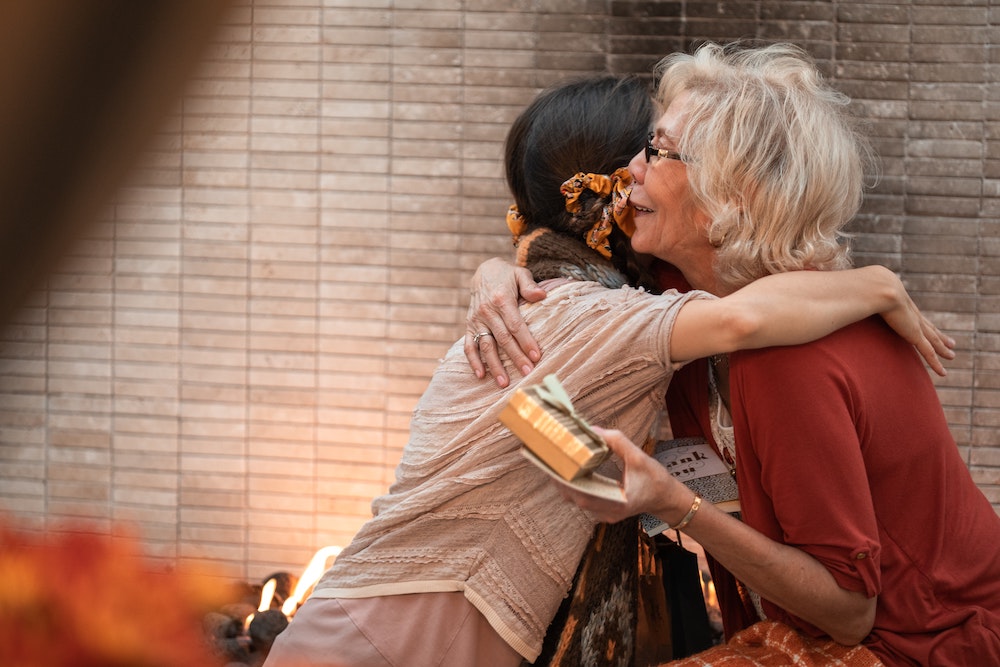The spirit of November’s holiday is gratitude. But giving gratefulness more air time in our heads year-round could do wonders for our psychological health. Research clearly demonstrates the direct relationship between gratitude and happiness. I’d like to share some information from Sonja Lyubomirsky’s book, The How of Happiness. In it, she lists several ways that practicing gratefulness increases your happiness.
1. Deliberately recognizing and relishing our joyous moments allows us to milk the positivity from our experiences which aids in diluting the negativity in our lives. As a therapist, for example, when I enjoy the hope a client begins to feel, it helps me cope with the times when my support and guidance don’t seem to be adequate.
2. When we reflect on what others have done for us and how much we’ve accomplished, it can bolster our self-esteem. This also helps us unlearn the unfortunate and more natural habit of focusing on our setbacks and times when others have hurt us.
3. Occasionally, we experience a brush with the loss of something precious and feel a deeper appreciation for it, or we actually lose something precious and our scope of gratefulness for other things previously taken for granted becomes much wider. In the days right after the September 11, 2001 terrorist attack, gratitude was found to be the second most commonly experienced emotion after sympathy. Focusing on what you appreciate the most during adversity helps us reinterpret stressful or traumatic events.
4. Expressing gratitude chokes the life out of envy. Those more likely to be thankful for what they have are less likely to pay attention to the neighbor’s awesome vacations and twice a week house-cleaning services.
5. Gratitude is also incompatible with other negative emotions, i.e., when we’re feeling it, it’s taking up the space where anger and bitterness would otherwise be, thereby diminishing the time these destructive feelings spend swarming around in your mind and body. Side note: Anger, by itself, is not destructive. It’s natural, and when the energy of it is used for asserting one’s needs or self-preservation instead of leaving it stagnant and seething, it’s a good thing.
6. Grateful people tend to be less materialistic because their focus is on what they truly value the most. In one study, people who were asked to focus on gratitude for a specific act of kindness were not only more likely to reciprocate this kindness toward the giver, but also more likely to do the same for a stranger, even when it involved doing a chore that was tedious or unpleasant. In this way, gratitude encourages us to actively love others.
7. Those who feel gratitude toward certain people tend to feel more bonded to those people, even when their appreciation goes unexpressed. We tend to treat these people better and it strengthens the relationship. Additionally, grateful people are generally more positive, which attracts others, thus, the opportunity for more relationships. More relationships equal a larger base of support.
I certainly hope you let this holiday of Thanksgiving be just that. There’s no better way to kick off the season or the rest of your life!
Written by Ted Crawford, LMFT
Pine Grove Clinical Therapist

About Ted Crawford, LMFT
Ted Crawford LMFT, provides psychotherapy for clients through the Employee Assistance Program (EAP) of Forrest General Hospital and at the Gratitude and Pine Grove Outpatient Services (PGOS) programs of Pine Grove Behavioral Health and Addiction Services, He earned his undergraduate degree in Education in 1987 and his master’s degree in marriage and family therapy in1995 from The University of Southern Mississippi. Ted has also completed training in the use of Eye Movement Desensitization and Reprocessing (EMDR) to address trauma issues. His background includes work as an educator prior to coming to Pine Grove. In addition to working at EAP, Gratitude and PGOS currently, Pine Grove has also benefitted from Ted’s work at the Child & Adolescent Day Treatment and Professional Enhancement Programs and on the inpatient adult psychiatric unit. He enjoys writing and has written numerous informative (and entertaining) articles on clinical topics in a format that is easily understood by both professionals and patients. Ted has been employed with Pine Grove since 1998 and working with the EAP since 2001.
About Pine Grove Behavioral Health & Addiction Services
Located in Hattiesburg, Mississippi, Pine Grove Behavioral Health & Addiction Services is one of the nation’s most comprehensive treatment campuses. Pine Grove’s world renowned programs treat gender specific substance abuse including specialized tracks for co-occurring eating disorders and trauma. Additionally, Pine Grove offers an Intensive Outpatient substance abuse healing program for adults and a separate treatment program specifically for those who are age 55 plus. Other Pine Grove specialty programs include a dedicated professional’s treatment curriculum and a comprehensive evaluation center. Pine Grove also features a program for patients with sexual addiction. Inpatient Services including an Adult Psychiatric Unit, along with a Child and Adolescent Psychiatric Unit, and Outpatient Services are other components. Pine Grove is a division of Forrest Health, a partnership of healthcare organizations across South Mississippi, and the behavioral healthcare extension of Forrest General Hospital, a 547 bed, level II Regional Trauma Center. Established in 1984, Pine Grove has provided nationally and internationally recognized health care for 37 years. For more information, please visit www.pinegrovetreatment.com and call 1-888-574-HOPE (4673).

